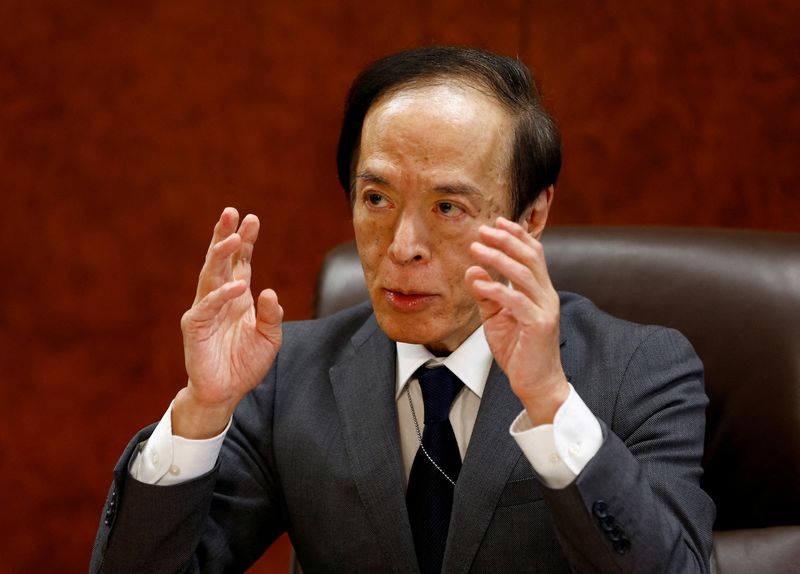Select Language

By Leika Kihara
TOKYO (Reuters) - The Bank of Japan is widely expected to maintain ultra-easy monetary policy on Friday despite stronger-than-expected inflation, as it focuses on supporting a fragile economic recovery amid a sharp slowdown in global growth.
The central bank is also likely to keep intact a pledge to "patiently" sustain massive stimulus to ensure Japan sustainably achieves its 2% inflation target accompanied by wage hikes.
With price rises showing signs of broadening, however, markets are focusing on whether BOJ Governor Kazuo Ueda will offer a stronger warning on the risk of an inflation overshoot at his post-meeting news conference.
The BOJ review comes after the Federal Reserve's decision on Wednesday to pause interest rate hikes as it closely watches the lagged economic impact of past monetary tightening.
At the two-day meeting ending on Friday, the BOJ is widely expected to maintain its -0.1% short-term interest rate target and a 0% cap on the 10-year bond yield set under its yield curve control (YCC) policy.
While the central bank may warn about risks to the global outlook, it will likely stick to its view Japan's economy is headed for a moderate recovery thanks to a post-pandemic pickup in consumption, sources have told Reuters.
Japan's core consumer inflation hit 3.4% in April, staying above the BOJ's target for over a year, keeping alive market expectations the bank will phase out YCC sometime this year.
Ueda has repeatedly brushed aside the chance of a near-term YCC tweak, arguing that the recent, cost-push inflation will slow back below the BOJ's target later this year.
But he also said the BOJ will "act swiftly" if its inflation projections prove wrong, and pointed to signs that corporate price-setting behaviour was starting to change.
With companies offering the largest pay hikes in three decades, the BOJ is also dropping hints that Japan's prolonged era of wage stagnation may be ending.
In an academic paper issued in May, the BOJ said inflation and wage growth could accelerate abruptly once costs exceed a certain threshold - and that once wages begin to rise, the trend could persist.
Many BOJ officials, however, prefer to stand pat for now to scrutinise global economic developments and corporate earnings, for clues on whether wages will keeping rising next year.
Japan's economy is making a delayed recovery from the pandemic and expanded an annualised 2.7% in the first quarter, with solid corporate and household spending moderating the blow from soft exports.

